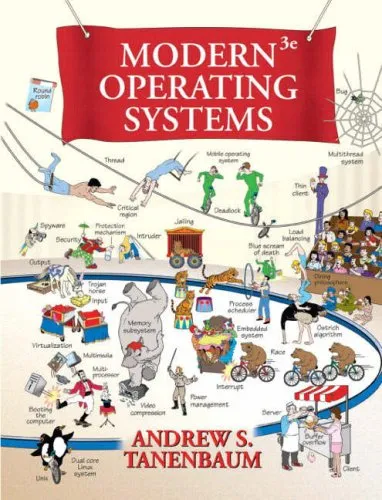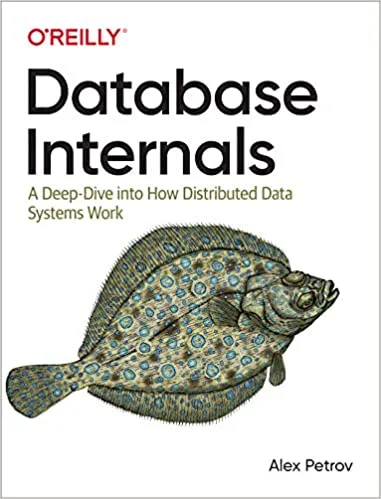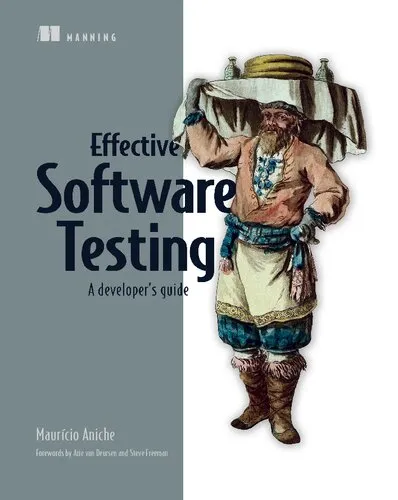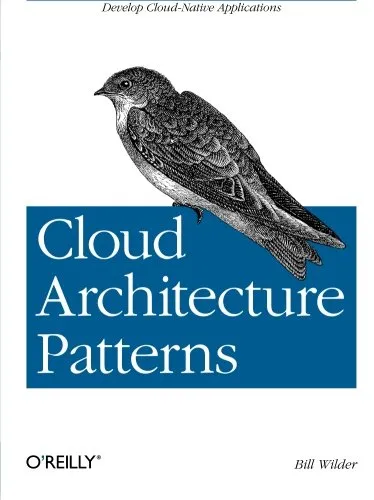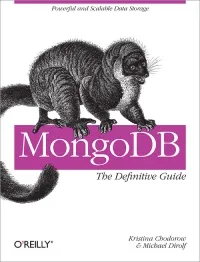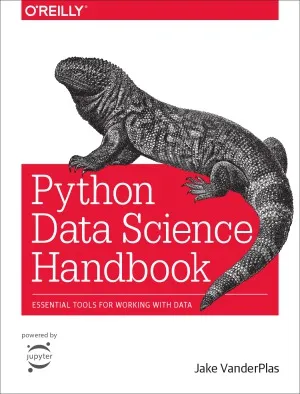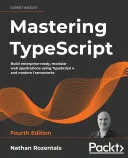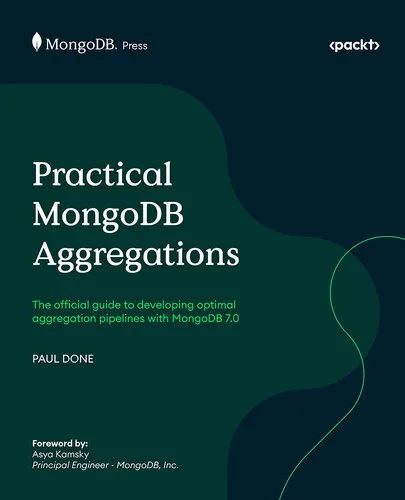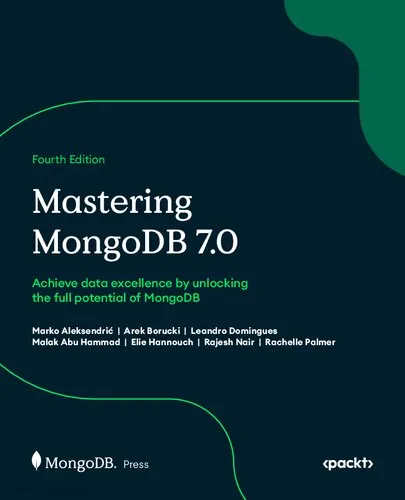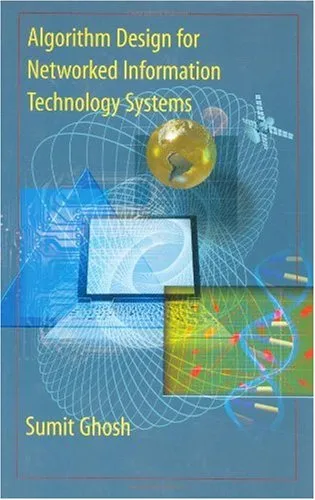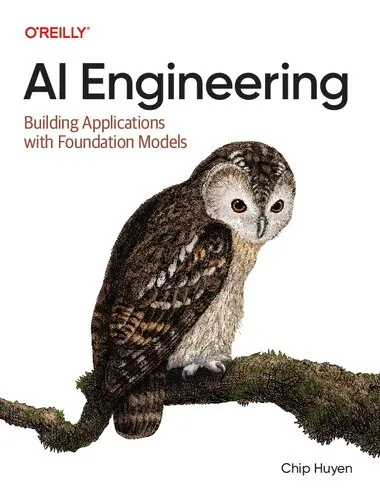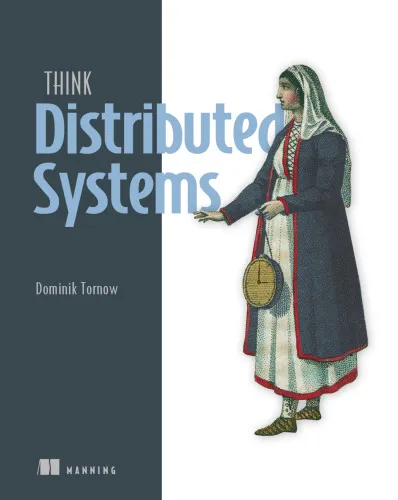Future Generation Computer Systems
4.6
بر اساس نظر کاربران

شما میتونید سوالاتتون در باره کتاب رو از هوش مصنوعیش بعد از ورود بپرسید
هر دانلود یا پرسش از هوش مصنوعی 2 امتیاز لازم دارد، برای بدست آوردن امتیاز رایگان، به صفحه ی راهنمای امتیازات سر بزنید و یک سری کار ارزشمند انجام بدینکتاب های مرتبط:
خلاصه تحلیلی کتاب
کتاب Future Generation Computer Systemspp.409—417 اثری تخصصی و پژوهشی است که به بررسی جنبههای فنی، نظری و عملیاتی در حوزه سامانههای کامپیوتری نسل آینده میپردازد. نویسندگان، با اتکا به تحقیقات و دادههای معتبر، تلاش کردهاند تصویری شفاف از مسیر تحول فناوریهای محاسباتی، بهویژه در بسترهای پردازش ابری و معماریهای توزیعشده، ارائه دهند.
مطالب کتاب، با ساختار منظم و توالی منطقی، خواننده را از مفاهیم پایه تا کاربردهای پیشرفته هدایت میکند. در عین حال، رویکرد فلسفی و آیندهنگر نویسندگان باعث شده تا این اثر فراتر از یک متن مرجع فنی صرف باشد و به یکی از منابع ارزشمند برای پژوهشگران و دانشجویان این عرصه بدل شود.
با وجود اینکه اطلاعاتی همچون سال انتشار یا جوایز دریافتی کتاب در منابع عمومی یافت نشد، بخشهای تحلیلی کتاب بهوضوح نشاندهنده عمق دانش نویسندگان و دقت علمی آنهاست. این مجموعه با ترکیب مطالعات موردی، بررسی عملکرد سامانهها و نقد رویکردهای موجود، بینشهای تازهای خلق میکند.
نکات کلیدی و کاربردی
یکی از برجستهترین نکات کتاب، پرداختن به همگرایی فناوریهای نوین همچون Machine Learning با زیرساختهای رایانش ابری است. این ترکیب، زمینهساز سرعتبخشی به فرایندهای تحلیل و پردازش دادهها میشود.
تمرکز ویژه بر امنیت اطلاعات و مدیریت منابع محاسباتی در شبکههای گسترده، از دیگر محورهای عملیاتی اثر است که در دنیای امروز، بهویژه برای توسعهدهندگان و مدیران فناوری، اهمیت حیاتی دارد.
کتاب همچنین به بررسی روشهای ارزیابی عملکرد سیستمها، بهینهسازی معماریهای محاسباتی و مدیریت بار پردازشی در سناریوهای واقعی پرداخته و توصیههایی مبتنی بر تجربه ارائه میدهد.
نقلقولهای ماندگار
این بخش به چند جملهی کلیدی از متن کتاب اختصاص دارد که خواننده را به عمق تفکر نویسندگان نزدیک میکند. این نقلقولها، نمایانگر دیدگاههای راهبردی و آیندهنگر هستند.
رایانش آینده، مرز میان منابع فیزیکی و مجازی را از میان برمیدارد. نامشخص
امنیت، نه یک ویژگی افزوده، بلکه زیربنای اعتماد به سیستمهای نوین است. نامشخص
چرا این کتاب اهمیت دارد
اهمیت Future Generation Computer Systemspp.409—417 از آن روست که بهطور همزمان نیازهای فعلی و آینده فناوری اطلاعات را مورد توجه قرار میدهد. کتاب با رویکرد جامعنگر، خواننده را نه تنها با تئوری بلکه با کاربردهای عملی در پروژههای بزرگ و پیچیده آشنا میکند.
این اثر، با ترکیب مفاهیم امنیت، مقیاسپذیری، و کارایی، بینش ارزشمندی برای طراحی و پیادهسازی راهحلهای نوآورانه ارائه میدهد. بدین ترتیب، نقش مهمی در تربیت نیروهای متخصص و راهبری پروژههای تحولمحور ایفا میکند.
نتیجهگیری الهامبخش
مطالعه کتاب Future Generation Computer Systemspp.409—417 تجربهای ارزشمند برای هر پژوهشگر یا علاقهمند به فناوریهای آینده است. این اثر، نهتنها به افزایش دانش کمک میکند بلکه جرقههای تازهای برای نوآوری و خلق ایدههای جدید میزند.
اگر به عمق مفاهیم و کاربردهای سامانههای کامپیوتری نسل آینده علاقهمندید، مطالعه این کتاب را در اولویت قرار دهید و سپس برداشتها و ایدههای خود را با دیگران به اشتراک بگذارید. این گام کوچک، میتواند آغازگر گفتوگوهای بزرگ و پیشرفتهای قابل توجه در حوزه فناوری باشد.
Analytical Summary
The book Future Generation Computer Systemspp.409—417 represents a focused exploration into the evolving architecture, design principles, and interoperability challenges that characterize modern computational infrastructures. Aimed at academics, professionals, and serious readers in computer science, it offers an authoritative lens into the convergence of high-performance distributed computing and advanced AI integration across multiple domains.
Drawing from multidisciplinary research and case studies, the authors position this work at the intersection of theoretical models and practical implementation. This section of the broader Future Generation Computer Systems canon underscores not just the technological capabilities available today, but the frameworks required to sustain growth, scalability, and resilience in complex environments. The analysis provides nuanced insights into network topologies, data throughput optimization, and machine learning workflows in large-scale systems.
Information on the specific year of publication is unavailable due to no reliable public source, but the text clearly situates itself within contemporary debates of the last decade concerning system interoperability, security, and adaptive computation. By combining rigorous technical detail with forward-looking implications, the book serves as both a snapshot of the state-of-the-art and a roadmap for future advancements in computing infrastructure.
Key Takeaways
Readers of Future Generation Computer Systemspp.409—417 will leave with a sharpened understanding of how distributed systems and artificial intelligence coevolve to meet the accelerating demands of data-intensive applications.
Core lessons include the value of designing systems with modular adaptability, leveraging AI to optimize resource allocation in real time, and implementing robust security protocols in multi-tenant architectures. Additionally, the book emphasizes the importance of collaborative frameworks where domain experts and developers co-create solutions that transcend isolated technical silos, thereby increasing efficiency and reducing latency.
Another takeaway centers on the ethical and societal impacts of these technologies, urging careful consideration of privacy, data governance, and equitable access in the rollout of next-generation computational frameworks.
Memorable Quotes
"Innovation in computing is measured not just by speed, but by adaptability and resilience." Unknown
"Distributed systems are the backbone of tomorrow’s intelligent infrastructure." Unknown
"Ethics must evolve alongside technology to prevent imbalance in global access." Unknown
Why This Book Matters
Future Generation Computer Systemspp.409—417 stands out for its capacity to translate intricate technical concepts into actionable knowledge for both practitioners and researchers in the computing field.
This book operates as an essential bridge between advanced theoretical research and tangible application scenarios, offering a toolkit for anyone aiming to improve system performance, drive innovation in AI integration, or pursue excellence in distributed computing. Its relevance lies in its cross-disciplinary approach, acknowledging that the complexities of future-generation systems cannot be solved in isolation but require cooperative, holistic thinking.
For institutions, laboratories, and industry leaders, the insights contained herein reinforce strategic planning, informing infrastructure investment while keeping pace with rapidly shifting technological landscapes.
Inspiring Conclusion
In closing, Future Generation Computer Systemspp.409—417 invites rigorous thought and collaborative exploration, urging readers to actively participate in shaping the computational future.
By combining technical mastery with societal awareness, the book provides a platform for informed dialogue among professionals, academics, and visionaries in computing. Engagement with its content is not merely an intellectual exercise—it is an opportunity to join a global conversation about the capabilities and responsibilities inherent in next-generation systems. Readers are encouraged to delve deeper into the work, share their interpretations with peers, and initiate discussions that will influence both current and future computing paradigms.
دانلود رایگان مستقیم
شما میتونید سوالاتتون در باره کتاب رو از هوش مصنوعیش بعد از ورود بپرسید
دسترسی به کتابها از طریق پلتفرمهای قانونی و کتابخانههای عمومی نه تنها از حقوق نویسندگان و ناشران حمایت میکند، بلکه به پایداری فرهنگ کتابخوانی نیز کمک میرساند. پیش از دانلود، لحظهای به بررسی این گزینهها فکر کنید.
این کتاب رو در پلتفرم های دیگه ببینید
WorldCat به شما کمک میکنه تا کتاب ها رو در کتابخانه های سراسر دنیا پیدا کنید
امتیازها، نظرات تخصصی و صحبت ها درباره کتاب را در Goodreads ببینید
کتابهای کمیاب یا دست دوم را در AbeBooks پیدا کنید و بخرید
1422
بازدید4.6
امتیاز0
نظر98%
رضایتنظرات:
4.6
بر اساس 0 نظر کاربران
Questions & Answers
Ask questions about this book or help others by answering
No questions yet. Be the first to ask!



